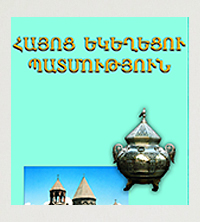
The government’s intention to remove the subject of “History of the Armenian Church” from schools has found a wide public response. From the very first days, the teaching of the subject was accepted by a part of the society without enthusiasm, and later, when the clergy of the Armenian Church entered the school and started using elements of religious rites, it made some people to complain. The complaints did not provoke a wide response among the public, but, nevertheless, their number was not small.
Representatives of some religious groups, such as Jehovah’s Witnesses, whose number is about 20,000 in Armenia, complained that their children were forced to pray against their will, those who were atheists or agnostics also complained about the prayers. Some of those who consider themselves followers of the Armenian Church as well were against forcing their children to pray. They believe that participation in religious ceremonies should be voluntary or with the consent of the parents, if it concerns the children.
There have been cases where some teachers have interrogated children and ridiculed their friends for being “sectarian”. The textbooks negatively present the Protestant churches, which have a number of followers from one hundred to two hundred thousand. The number of members of religious communities in Armenia has not been specified, despite the fact that every year the heads of religious communities presented the number of their members to a special department for religious affairs under the government.
In fairness, it should be noted that not all parents have a negative attitude towards the teaching of the subject. A significant group of the society thinks that this subject should be taught — without the history of the Armenian Church it is difficult to imagine the history of Armenians in general, and as for prayers and religious rites, they do not see anything negative in it.
This is the general picture, now let’s refer to the public discourse related to the issue of teaching the subject.
Obviously, the issue is politicized, and maybe it indeed is a political issue, because it is difficult to imagine a more important political issue than education and the content of school textbooks.
Proponents of the subject claim that the steps taken against a “national” institution such as the church are directed against the national identity of the Armenians. Proponents of the government say they are not against the church, they are not against the history of the church being taught in schools, but the subject of the history of the Armenian people is at the same time the history of the church, just as other subjects will include information about the church.
The subject of “History of the Armenian Church” has become a political issue, a watershed between “nationalists” and “anti-nationalists” and is being used in the internal political struggle. Under such conditions, objective judgments on the subject have become almost impossible: either you are against this government, then you are for the teaching of the subject, or you are for the government and hence against the subject. This situation severely narrows and politicizes the positions.
Let’s try to approach the problem as objectively as possible, without taking political sides:
In this respect, it is clear that the knowledge of religions must be taught in school, but it must be done in a fairly literate way, without religiousizing the subject. And if there are parents who want their children to receive religious education, it should be organized on an optional basis or outside of school.
These are general theses about the problem, but there is another important issue that is not discussed in public discussions — the content and quality of textbooks. The quality of textbook content is very low, not objective, very one-sided in terms of historical impartiality, often unreliable. It can be argued that even if such a subject is ever taught again in school, it must be completely transformed. The main problem of these textbooks is not so much that they are taught as a separate subject in the school, but rather their quality and content.